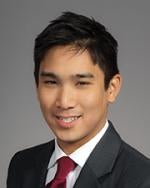Addressing when a descriptive mark acquires a secondary meaning, the U.S. Court of Appeals for the Fifth Circuit affirmed the district court, determining that neither party is entitled to a federal registration of the disputed mark. Test Masters Educ. Servs., Inc. v. Robin Singh Educ. Servs., Inc., Case No. 13-20250 (5th Cir., Aug. 21, 2015) (Southwick, C.J.).
The case involves a dispute between two competing test-preparation companies that use the same “TESTMASTERS” mark. The parties primarily use the mark for different types of tests in different geographic areas. Test Masters Educational Services (TES) primarily prepares students for engineering licensing exams in Texas. Robin Singh Educational Services (Singh) primarily prepares students for the LSAT in California. Both TES and Singh, however, had expanded their services and sought nationwide registration of the mark.
The parties have been litigating the issue for more than 10 years, and this is the fourth time they have appealed to the 5th Circuit. Previously, the court determined that neither party was entitled to nationwide registration of the TESTMASTERS mark because the mark was descriptive and had failed to acquire secondary meaning. To be registered as a trademark, a descriptive mark must have acquired secondary meaning through its use, such that it becomes “uniquely associated with a specific source.”
In the current suit, the district court again determined that neither party was entitled to nationwide use of the TESTMASTERS mark. In affirming the district court, the 5th Circuit determined that TES’s mark had not acquired “secondary meaning on a nationwide basis for all test preparation courses.” As support, the court pointed to the evidence for record showing that Singh had more business than TES outside of Texas and that both parties had advertised extensively in their respective subject matter areas (engineering students for TES and LSAT students for Singh). The court also found that TES’s customer survey evidence was unpersuasive because it was primarily from engineering students. According to the court, “[e]ach party’s evidence shows that, in its strongest subject matter area, it is well-known and there may be some consumer confusion.” So, while the TES mark may have acquired a secondary meaning for professional engineering examinations, it has not acquired a secondary meaning for any other, much less all, test preparation services.
The 5th Circuit also disagreed that the district court should not have considered Singh’s use of the mark when determining whether the TES mark had acquired secondary meaning. The secondary-meaning inquiry asks whether consumers associate the mark with one particular company, and it was proper for the district court to consider evidence that customers associated the mark with Singh, as opposed to TES. The court concluded its opinion by warning the parties that further litigation without substantial justification could result in sanctions.



 />i
/>i

